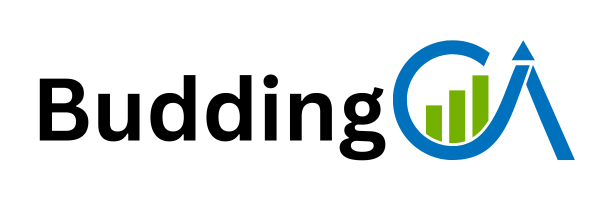The world of internal auditing offers a dynamic and rewarding career path for Chartered Accountants (CAs) and aspiring professionals. Internal auditors play a crucial role in ensuring the financial integrity and operational efficiency of an organisation. As a CA, if you are preparing for an internal audit interview, it’s essential to be well-prepared and confident. This guide will help you navigate the interview process, providing tips and strategies to showcase your skills, knowledge, and passion for the role.
Understanding the Role and Responsibilities of an Internal Auditor
Before you even think about your interview, it’s vital to have a deep understanding of the role of an internal auditor. The core responsibility of an internal auditor is to evaluate and improve an organisation’s internal controls, risk management processes, and financial procedures. The position requires a keen eye for detail, an understanding of risk assessment, and a solid grasp of financial regulations.
Key Responsibilities:
- Risk Management: Identifying potential risks and assessing their impact on the organisation.
- Control Testing: Evaluating the effectiveness of internal controls and recommending improvements.
- Compliance Checks: Ensuring that the organisation adheres to laws, regulations, and industry standards.
- Reporting: Preparing audit reports and presenting findings to management.
When preparing for an interview, think about how your experience aligns with these duties. Being able to discuss your past work related to risk management, internal control design, or compliance will help you stand out.
Researching the Company
Thoroughly researching the company you are interviewing with is essential. A well-informed candidate shows genuine interest and preparedness. Research the company’s industry, its market position, and any recent news or developments that might impact its business.
Key Areas to Research:
- Company Overview: Understand the company’s history, mission, and values.
- Recent Developments: Stay updated on any mergers, acquisitions, or financial updates.
- Culture and Values: Get a sense of the company’s work culture to tailor your responses to align with its environment.
This will also help you understand how your skills can contribute to the company’s objectives and give you an edge in answering questions that require a deeper understanding of the company’s operations.
Highlighting Your Relevant Skills and Experience
One of the key aspects of any job interview is highlighting your strengths and how they align with the role. For an internal audit position, you should emphasise the technical and soft skills that make you an ideal candidate.
Key Skills to Highlight:
- Risk Assessment: Your ability to identify and assess potential risks in an organisation’s processes.
- Audit Methodologies: Familiarity with standard audit methodologies like the COSO framework or the Institute of Internal Auditors (IIA) Standards.
- Financial Regulations: A solid understanding of financial regulations, including IND AS and SA (Standards on Auditing).
- Analytical Skills: Your ability to analyse data and generate insights that can improve organisational performance.
- Communication Skills: The ability to present audit findings clearly to senior management.
Provide concrete examples from your previous experiences, such as an audit project where you identified a major risk or implemented an improvement in financial controls. This will help interviewers see the value you can bring to their organisation.
Preparing for Technical Questions
Internal audit interviews typically include a range of technical questions. These questions assess your proficiency in audit methodologies, standards, and tools. Prepare by reviewing the latest developments in auditing standards and refresh your knowledge of core topics.
Potential Technical Areas to Prepare:
- IND AS (Indian Accounting Standards): Understand the key principles and standards relevant to internal audit.
- COSO Framework: Be prepared to explain how this framework helps in risk management and internal control.
- SA (Standards on Auditing): Familiarise yourself with the specific auditing standards followed in India.
- Fraud Detection: Brush up on your knowledge of fraud detection methods and how you would approach identifying fraudulent activities.
- IT Auditing: If the role involves IT auditing, be prepared to discuss the tools and techniques used in auditing information systems.
You may be asked to explain specific auditing methods or walk through a scenario to demonstrate how you would handle an audit process. Revisit relevant case studies and practical examples to help you respond effectively.
Practising Behavioural Questions
Behavioural questions are designed to assess how you’ve handled various situations in the past. The STAR method (Situation, Task, Action, Result) is a great way to structure your answers.
Sample Questions:
- Tell us about a time when you identified a significant risk during an audit.
- Describe a challenging audit project you worked on and how you overcame obstacles.
- How have you contributed to improving internal controls in your previous role?
When answering, be specific. For example, instead of saying, “I identified a risk,” explain the situation in detail: the nature of the risk, how you handled it, and the result of your actions. This method demonstrates your problem-solving abilities and provides the interviewer with a clear understanding of your approach.
Developing Your Own Questions
Interviews are a two-way process. While the interviewer assesses your skills and experience, you also have the opportunity to learn more about the company and the role. Prepare thoughtful questions that demonstrate your interest and curiosity.
Sample Questions to Ask:
- How does the company assess and manage risk across its departments?
- Can you describe the company’s audit process and how the internal audit team collaborates with other departments?
- What opportunities for professional development and growth are available to internal auditors in your organisation?
These questions show that you’re not just looking for a job but are genuinely interested in understanding the company’s operations and how you can contribute.
Staying Updated on Industry Trends
Internal audit is a dynamic field, and staying updated on industry trends is essential. Read articles, attend webinars, and join professional organisations like the Institute of Internal Auditors (IIA) to keep yourself informed about new technologies, regulations, and best practices in auditing.
Trends to Watch:
- Data Analytics in Auditing: Learn how data analytics is being integrated into audit practices to enhance decision-making and risk assessment.
- Automation and AI: Understand the role of automation and artificial intelligence in streamlining audit processes.
- Regulatory Changes: Stay informed about new regulations that may impact auditing practices in India, such as changes in the Companies Act or tax laws.
Mentioning these trends in your interview will demonstrate your commitment to professional growth and show that you’re aware of how the field is evolving.
Dressing for Success
First impressions matter, and your appearance plays a significant role in how you’re perceived during the interview. Dress in professional attire that aligns with the company’s dress code. It’s always better to be slightly overdressed than underdressed.
Tips for Dressing:
- For men: A formal shirt, tie, and trousers are generally a safe choice. If you’re unsure about the dress code, lean towards more formal attire.
- For women: A formal blouse or shirt with trousers or a formal skirt is appropriate. You may also consider a professional suit.
Looking polished and professional will help you feel more confident during the interview.
Rehearsing Your Interview
The more you practice, the more confident you will feel. Conduct mock interviews with a friend, family member, or mentor. This will help you refine your answers, improve your confidence, and get used to speaking clearly about your experiences and qualifications.
Focus on:
- Tone of Voice: Speak clearly and with confidence.
- Body Language: Maintain good posture and make eye contact with the interviewer.
- Concise Answers: Avoid rambling. Answer questions directly and stay on point.
Rehearsing will also help you identify any areas where you need to improve or clarify your responses.
Planning Your Journey
On the day of the interview, ensure you know the exact location and time. Aim to arrive a bit early to account for unexpected delays, like traffic or issues with public transport. Being punctual reflects your professionalism and reliability.
Preparation Checklist:
- Check the interview address and the best route to get there.
- Allow extra time for potential delays.
- If you are doing the interview online, ensure your technology is working properly.
During the Interview
When it’s time for the interview, remember to:
- Greet your interviewers with a firm handshake and a confident smile.
- Listen actively to the questions and take a moment to gather your thoughts before responding.
- Provide concise and well-thought-out answers.
- Emphasise your ability to work in a team, providing examples of past collaborations.
- Stay positive and enthusiastic, even when discussing challenges or past mistakes.
Your goal is to leave a lasting impression that highlights your skills, professionalism, and passion for the field of internal auditing.
Follow Up with a Thank-You Note
After the interview, send a personalised thank-you email. Express gratitude for the opportunity to interview and reaffirm your interest in the role. This small but meaningful gesture shows professionalism and enthusiasm.
Your Path to Success in Internal Audit
The internal audit interview is more than just a chance to prove your technical skills; it’s an opportunity to showcase your dedication, problem-solving abilities, and passion for improving organisational processes. By thoroughly preparing for your interview, staying updated on industry trends, and demonstrating professionalism, you can confidently step into the world of internal auditing and embark on a fulfilling career.
Remember, this isn’t just about getting a job—it’s about beginning a career that offers continuous learning, growth, and the chance to make a real impact on an organisation’s success.
Calling all CA dreamers!
🔴 Are you tired of searching for the perfect articelship or job?
Well, fear no more! With 10K+ students and professionals already on board, you don't want to be left behind. Be a part of the biggest community around! Join the most reliable and fastest-growing community out there! ❤️
And guess what? It’s FREE 🤑
✅ Join our WhatsApp Group (Click Here) and Telegram Channel (Click Here) today for instant updates.




